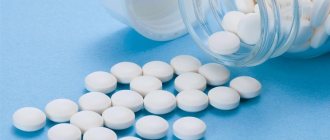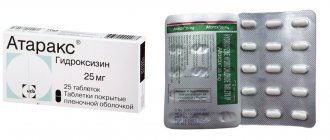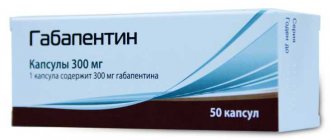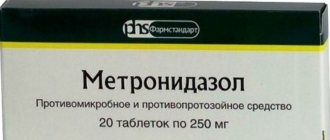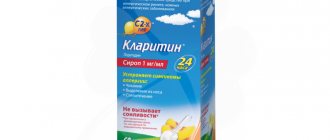α-Lipoic acid (ALA), also known as thioctic acid, is a chemical compound commonly found in cellular mitochondria, where it is involved in various enzymatic processes.
ALA is an organosulfur compound naturally produced by plants and animals, including humans. In humans, the synthesis of thioctic acid is low, so the amounts of ALA produced are not enough to meet the energy needs of the cell. The human body obtains the bulk of thioctic acid, necessary for the normal functioning of cells, from food, mainly meat and vegetables, but fruits are also a source of ALA.
Alpha lipoic acid has many clinically beneficial properties. In addition to the enzymatic cofactor, ALA is involved in:
- in the metabolism of glucose and lipids (fats);
- as an antioxidant, it not only protects the cell from free radicals, but also restores the cells’ own antioxidant systems;
- improving glycemic control and alleviating complications of diabetes;
- effective removal of heavy metals from the blood;
- in energy production by mitochondria;
- control of gene transcription.
The most notable quality of lipoic acid is its vital role in maintaining glucose levels during metabolism. This property has made it possible to use ALA as a drug for pain associated with diabetic polyneuropathy and paresthesia.
Over many years of use as a dietary supplement, alpha lipoic acid has shown beneficial effects in both the treatment and progression of a number of diseases. Pharmacological effects are primarily associated with its antioxidant activity, but in parallel, interesting cardiovascular, cognitive, anti-aging, detoxifying, anti-inflammatory and neuroprotective properties have been discovered.
Effect of alpha lipoic acid on the body
Vitamin N is synthesized in the required quantity by the body and is partly supplied to it through food. The antioxidant normalizes liver function and enhances the beneficial properties of ascorbic acid, vitamin E, regulates normal blood levels of glucose and cholesterol, and participates in metabolic processes and the formation of enzymes. Protects cells from oxidation and the negative effects of toxins and free radicals.
Lipoic acid is essential for a woman’s health, specifically for:
- Heart, blood vessels - helps reduce the likelihood of developing atherosclerosis, in case of heart failure it serves as an additional source of useful compounds;
- Endocrine system – regulates and reduces blood sugar, maintains the condition of the thyroid gland;
- Pancreas – treats inflammation due to pancreatitis;
- Reproductive system – normalizes the menstrual cycle and reproductive functions;
- Immune system – helps the body neutralize the harmful effects of toxins, heavy metals and radiation;
- Digestive organs – restores the liver, protecting the organ from damage, and normalizes intestinal activity;
- Gastrointestinal tract - the element is important for the treatment of tract organs and poisoning of varying stages of severity;
- Kidney – has a positive effect on the kidneys, removing stones and salts.
The vitamin also reduces the risk of the appearance and development of malignant diseases in women. Additionally, the substance is recommended for use in the treatment of the following pathologies: high cholesterol, poisoning, viral and toxic liver damage. This vitamin is also prescribed to support the functioning of the thyroid gland, stimulate memory, improve vision, for brain functions and improve the functioning of the nervous system.
Benefits and harms
The benefits of alpha lipolic acid are as follows:
- The acid is water-soluble, so it easily overcomes cellular barriers and affects almost all organs and systems. It acts in both fatty and aqueous environments.
- The substance supports other antioxidants such as vitamin C and E.
- Takes part in the synthesis of food into energy.
- Helps increase training effectiveness.
- Neutralizes the negative effects of free radicals and reduces oxidative stress.
- Normalizes blood sugar.
- Supports cellular metabolism.
- Fights against aging.
- Supports the functioning of the liver and other important organs.
Harm to alpha-lipolic acid is possible if contraindications are not followed. Tablets should not be taken during pregnancy and lactation, if you are individually sensitive to the component.
Sometimes side effects are possible:
- heartburn;
- manifestations of allergies;
- pinpoint hemorrhages;
- nausea;
- increased intracranial pressure;
- convulsions.
If negative effects occur, you should stop taking the drug and consult a specialist.
Lipoic acid - a means for weight loss
Currently, the substance is popular among women and is used as a means of burning fat. How is lipoic acid useful in the process of losing weight and how does it help in this process? When it enters the female body, vitamin N helps break down proteins with amino acids. If you combine acid intake with regular physical activity, the fight against excess body weight will become more productive.
But before taking lipoic acid to eliminate excess body weight, you should consult a doctor. The product is taken in the morning before meals with plenty of water, after training and at dinner. This method of losing weight requires a rich and nutritious diet. An unbalanced menu causes a constant feeling of hunger, which can provoke a nervous breakdown.
Thioctic acid will give a noticeable effect only with a healthy and nutritious diet and physical exercise. The vitamin is not harmless, it has certain contraindications and in case of overdose there are side effects that cause a number of unpleasant symptoms. Therefore, it is recommended to use the weight loss element only as part of a comprehensive measure and always under the supervision of a doctor.
In what cases should it be taken?
Doctors recommend using this drug when the following pathological conditions occur:
- pathologies of peripheral nerves caused by alcoholism;
- diabetic neuro- and angiopathy;
- metabolic syndrome;
- with fatty degeneration of hepatocytes or cirrhosis of the liver;
- after poisoning with various substances (alcohol, food toxins, heavy metals);
- with atherosclerotic vascular disease;
- with frequent colds associated with decreased immunity;
- with heavy and intense physical and mental stress;
- in the treatment of patients who have recently suffered a stroke.
Many people use alpha lipoic acid as a very effective weight loss aid.
It should be noted that this drug itself cannot cause fat burning; it gets rid of extra pounds only due to the fact that it reduces the concentration of glucose in the blood and eliminates the feeling of hunger. It turns out that a person taking this wonderful vitamin practically does not feel hungry, as a result of which he completely controls the time of food intake, as well as its quantity, which is why, in fact, he loses weight.
Normalizing plasma glucose levels simultaneously ensures the quality of lipid metabolism, and this, in turn, improves overall well-being. Thanks to its unique properties, thioctic acid allows you to convert absolutely all the carbohydrates you eat into energy resources, which means that excess fat will not be formed from glucose. This drug removes many wastes and toxins from the body, which also greatly facilitates the process of losing excess weight, albeit in an indirect way.
Lipoic acid enhances thermogenesis, increases energy expenditure, thereby affecting the formation of heat in the body. Due to this, active fat burning occurs.
If you learn to properly combine a balanced diet, physical activity and taking lipoic acid, you can soon achieve excellent results in the form of a tightened waist and a reduction in the numbers on your scales. Today, various dietary supplements are common, which include this acid and many other useful components that enhance its effect (B vitamins, carnitine, etc.). To reduce weight, the recommended dosage is 12 to 25 milligrams twice a day after meals. On training days, you can take the product additionally before and after sports. The maximum dose that can be taken by those losing weight is 100 milligrams per day. As for the duration of its use, it is usually two to three weeks.
Vitamin N for facial skin care
The element actively participates in metabolic processes, breaks down fat cells, participates in cell regeneration and slows down the aging process. At a young age, the body synthesizes this compound, but over the years this ability decreases. With its deficiency, a woman begins to age. In order to remain healthy at Balzac’s age and have a slim figure, it is advisable to introduce drugs containing vitamin N into the menu. The advantage of the compound is the preservation of properties beneficial to the body in a fatty environment.
Lipoic acid is considered an essential substance in the manufacture of skin preparations. The cream containing it penetrates the cell membrane without obstacles, eliminating wrinkles and pigmentation that appeared under the negative influence of toxins and direct sunlight.
Such remedies can be made at home, for which you need to take 30-40 grams of cream and add to it from 400 to 800 mg of the element at a concentration of 3%. Constant use of the prepared cream reduces the number of wrinkles and their depth, improves facial skin, eliminating inflammation, irritation and rashes on the skin.
The antioxidant has an effective effect on cells from the inside, as it is able to reduce the amount of sugar in the blood. This is due to the fact that sugar attaches to collagen, causing a loss of elasticity, which leads to wrinkles and dry skin as we age. Therefore, for older women, taking the element is important not only to preserve beauty, but also all the vital functions of the body.
Why is an additional appointment necessary?
Alpha lipoic acid is produced by the human body independently, but only to the extent of preventing deficiency. An extremely small amount of this compound is consumed with food. In addition, ALA, contained in many foods, has low biological activity. This creates the need for its additional intake, especially during intense physical activity, for example, during bodybuilding.
Taking alpha lipoic acid in sufficient quantities allows you to solve several problems at once.
- ALA is an effective antioxidant and fights free radicals, slowing down the aging process. The versatility of the antioxidant effect is achieved due to the substance’s ability to dissolve not only in water, but also in fat. This significantly increases the effectiveness of intracellular protection. Additionally, taking the drug allows you to enhance the effect of other antioxidants - vitamins E and C.
- Alpha lipoic acid helps restore liver cells and prevents fatty degeneration. It improves the metabolism of fats and carbohydrates, improves thyroid function, promotes the removal of toxins and heavy metals from the body, and slows down the growth of adipose tissue.
- One of the main functions of thioctic acid is to normalize the body's production of insulin and enhance its action. This improves the delivery of glucose and amino acids to cells. In addition, ALA increases the efficiency of the body's process of obtaining energy from glucose.
- With moderate dosage, it improves the functions of the brain and nervous system.
These properties allow lipoic acid to be used as an additional drug in the treatment of many diseases, including:
- diabetes;
- liver diseases;
- infectious and viral diseases;
- nervous system disorders, etc.
It is often used as an adjuvant drug to reduce the side effects of medications.
The effect of stimulating metabolic processes and activating the breakdown of fat cells allows the use of ALA for weight loss. However, tangible results in this direction are achieved only with controlled diet and regular physical activity. Finally, alpha lipoic acid is a valuable nutritional supplement for athletes.
Thioctic acid for women after 50 years
Between the ages of forty and fifty, women experience a depletion of the antioxidant system and an increased need for acid to fight free radicals. A daily dose for preventive purposes – from 60 to 100 mg will slow down aging and wear and tear of the body.
Over the years, problems arise due to diseases of the internal organs, the cardiovascular and other systems of the body suffer. Under such conditions, alpha lipoic acid is quickly consumed.
An unbalanced diet, fast foods, unhealthy drinks, bad habits and stress lead to the need for an additional dose of the vitamin, the daily requirement of which is 300 mg, and with intense physical activity up to 600 mg per day.
For Alzheimer's disease, diabetes, neuropathy, and liver damage, the daily dose ranges from 300 to 600 mg.
The substance is also introduced into a complex composition to facilitate menopause, during which bone mass is lost. Lipoic acid is essential for increasing bone mineral density. Neurologists advise older women to consume 600 mg of the element per day in order to avoid age-related problems with the brain and to correct changes that have formed in the female body over time.
Main indications for use
Specialists use alpha lipoic acid in the treatment of:
- Hyperglycemia and its consequences in the form of cataracts and neuropathy;
- Various types of liver diseases;
- Diseases of the central nervous system - Alzheimer's;
- Oncological diseases;
- Alcohol addiction;
- Intoxication with harmful substances;
- Thyroid gland;
- Insufficient blood circulation to the brain, which leads to decreased attention and forgetfulness;
- Decreased immune system.
Alpha lipoic acid for infertility
If a woman cannot become pregnant for a long time, then lipoic acid can promote conception by improving the quality of sperm in a man, which is also important for the subsequent development of the embryo. Many gynecologists include lipoic acid in their vitamin regimen, which is compiled during planning and preparation for pregnancy. The element is able to improve the effect of other vitamins, cleansing the body of the negative interference of harmful toxins and preventing the formation of chronic inflammatory processes.
Important! During pregnancy, it is necessary to protect the fetus from anemia; for this, doctors try to maintain and increase the iron level in a pregnant girl. Alpha-lipoic acid lowers iron levels and therefore expectant mothers are advised to avoid it during this period or take it as needed only as prescribed by a gynecologist.
Clinical studies have established that the element will not harm the well-being of the expectant mother, but its safety for the developing fetus has not yet been confirmed. In this regard, when prescribing an antioxidant, the doctor weighs the potential risk for the baby and the benefit for the mother. Since lipoic acid also passes into breast milk, it is not recommended to use it during lactation.
Contraindications and side effects
Despite its pronounced medicinal properties, alpha lipoic acid cannot be taken by everyone. Caution is recommended in the following cases:
- age up to 6 years;
- hypersensitivity to the components of the drug;
- pregnancy and lactation period.
Temporary contraindications include taking blood thinning medications, calcium, magnesium, iron supplements and Cisplatin.
Alpha lipoic acid has virtually no side effects when taken orally.
In rare cases, allergic rashes, changes in taste, and headaches are observed. Much more often, adverse reactions occur when the drug is administered intravenously. In case of overdose, nausea, heaviness in the head, indigestion, and flatulence may occur.
Dosage and methods of taking lipoic acid
If a woman adheres to a properly balanced diet, does not have chronic pathologies and does not abuse alcoholic beverages, then additional use of vitamin N is not necessary. In these cases, the body makes do with the amount of the substance that comes with food or is synthesized by the body itself.
Additionally, you cannot take products that contain lipoic acid without a doctor’s recommendation, since uncontrolled use will cause harm and negative effects.
The daily dose depends on the purpose of administration (preventive or therapeutic), on the age and gender of the patient. For prevention, women are recommended to take 25 mg per day, for the treatment of pathology - from 300 mg to 600 mg per day. The products are available in tablets and in solution for intravenous infusion. In tablet form, the supplement is taken twice a day before meals. For medicinal purposes, the antioxidant is first administered intravenously, then the patient is transferred to tablet form. The duration of the course and dosage of the drug are determined only by the doctor, who, when prescribing, takes into account the characteristics of the woman’s body.
Exceeding the dosage leads to undesirable reactions in the body, such as:
- Heartburn,
- Stomach ache,
- Rashes,
- Dizziness,
- Weakness,
- Pain in muscles and joints,
- Increased skin sensitivity.
The intake of the substance is limited to a monthly course, regardless of age.
Instructions for use
The maximum daily dosage of the drug with lipoic acid for weight loss is 600 mg, which should be divided into 3 doses, that is, 200 mg at a time. Exceeding the specified dosage is strictly prohibited.
If you have never taken this drug in the past, then you need to start with a daily dosage of 200 mg, gradually increasing it to the recommended one. The minimum dosage per 1 dose is 25 mg. If your goal is to lose 5 kg or more, then the single dosage of the drug increases to 50 mg.
Regimen for taking lipoic acid for weight loss:
- Do not chew the tablets, swallow them whole with a sufficient amount of mineral water.
- In the morning, tablets are taken on an empty stomach 30 minutes before breakfast.
- In the daytime and evening, the drug is taken with food or immediately after a meal.
- To increase the effectiveness of the drug, it is recommended to take tablets after sports or before bed (as advised by experienced nutritionists).
In case of overdose, hypoglycemia may develop, caused by low levels of glucose in the blood, as well as hypothyroidism (a disease of the thyroid gland that occurs against the background of low levels of hormones produced).
Interaction of vitamin N with other drugs
When taking an element, it is important to know about its interactions with other medications:
- Cisplatin – an element that reduces the effectiveness of the drug when used together,
- Insulin, hypoglycemic drugs – the effect of drugs for hypoglycemia and insulin is enhanced,
- Carnitine - the effect of the medicine is enhanced.
Attention! Lipoic acid is incompatible with ethanol, dextrose and Ringer's solutions.
It is important to know that the antioxidant removes magnesium and iron from a woman’s body; therefore, it is recommended to supplement the menu with the necessary supplements, especially for those patients who have anemia and who suffer from a lack of magnesium in the body.
Application in sports and bodybuilding
The properties of alpha lipoic acid make it a valuable supplement for bodybuilders and other athletes whose training involves intense physical activity. It saturates muscle cells with glucose and amino acids. It is amino acids that allow the cell to form its volume, and glucose provides energy for this process.
In addition, ALA serves as an important source of sulfur for the human body. This mineral is necessary for the normal functioning of muscle fibers. The production of sulfur by the human body occurs only when it is deficient. However, its natural amount is not enough to quickly gain muscle mass. Taking lipoic acid can compensate for the deficiency.
The antioxidant properties of ALA help:
- enhance the athlete’s potential;
- ensure proper and accelerated recovery of muscle tissue after increased loads;
- reduce the synthesis of heavy radicals during training, thereby ensuring proper rest and muscle growth.
Thioctic acid also has anti-catabolic properties, preventing the destruction of proteins. Due to this, the effectiveness of the bodybuilder’s training increases.
The interaction of ALA with creatine, one of the most popular supplements among bodybuilders, is of great importance. Creatine helps to significantly accelerate the growth of muscle mass and strength in an athlete. However, the problem with its use is that it is poorly absorbed by the body, which forces you to consume creatine in large volumes. Alpha lipoic acid, by increasing insulin levels, promotes improved absorption of creatine. When taken together with ALA, creatine levels in the body increase by more than 11% compared to normal consumption. As a result, the athlete, without increasing the dose of creatine intake, achieves much better results from taking it.
Vitamin N analogues
Pharmaceutical companies offer lipoic acid analogues in the form of solutions, tablets and capsules. The analogues contain the same substance, but their differences lie in the design, degree of purification, dosage and price of the drug. It is impossible to find other products that have the same properties, because this endogenous substance can only be produced by the body.
Analogues:
- "Berlition"
- "Espa-Lipon"
- "Octolipen"
- "Tiolepta"
- "Tiogamma"
- "Neurolipon".
In the modern chemical industry, 2 analogues of acid with a mirror molecule are produced - right and left. The names of the drugs contain Latin letters: L or R.
The “right” drug is more expensive, since it fully corresponds to the substance that the body produces. This remedy is well absorbed and therefore the recommended dosage is advised to be halved. “Left” is a weaker drug, is less absorbed and has little effect on insulin sensitivity.
In the case of thioctic acid, the drug is very friendly, but it is not recommended to use it on your own. Only the attending physician can choose the right dosage and the correct form of administration.
What signs indicate liver problems?
Liver pathology can manifest itself with different symptoms. Most often this is:
- coating on the tongue;
- dark circles under the eyes;
- brown pigmentation on the body in the form of spots;
- unpleasant skin odor;
- rosacea;
- unpleasant odor from the mouth;
- pain or heaviness in the right hypochondrium.
Contraindications for additional use
All the properties of lipoic acid, as well as its benefits and harms for women, have been sufficiently studied by scientists. The element is necessary to support the functioning of all important functions of the body, but additional intake of vitamin N also has contraindications.
The acid is not recommended for use in cases of sensitivity to the components contained in its composition or allergic reactions. Vitamin N is also not prescribed to children under 6 years of age and pregnant girls, except in special cases.
Lipoic acid sometimes causes the following side effects in the body:
- Failure of the functions of the digestive tract, which causes vomiting, nausea, heaviness and abdominal pain;
- Itching, irritation, eczema;
- Anaphylactic shock;
- Fainting and headaches;
- Convulsions;
- Decreased blood glucose levels and deterioration of blood clotting.
Certain conditions of the body are not a complete contraindication, but require an informed decision about the use of the drug. For example, thioctic acid lowers blood sugar, enhancing the effect of medications taken for diabetes. The use of the element in the treatment of diabetics can provoke hypoglycemia.
The drug can reduce the effectiveness of chemotherapy and therefore is not prescribed for the treatment of cancer patients. The supplement should also be used with great caution in patients with stomach ulcers, gastritis with high acidity levels and low thyroid function. The duration of use may increase the risk of side effects.
Antidiabetic potential
Among the many metabolic pathologies, diabetes mellitus represents one of the most serious health problems, currently affecting several hundred million people in the world. Manifested by metabolic disorders of carbohydrates, fats and proteins. By inhibiting such basic processes in the body, diabetes becomes a major risk factor for the development of a number of diseases: hypertension, atherosclerosis, heart failure, myocardial infarction, and neuropathic pain.
Several studies have found ALA's ability to increase sugar uptake in insulin-sensitive and insulin-resistant muscle tissue (), as well as stimulate glucose uptake by more efficiently redistributing glucose transporters.
Natural Sources of Lipoic Acid
The element can be partially formed in the body and accumulate in the kidneys and liver. With a healthy diet and active life, this amount of vitamin is enough for women.
To maintain the required amount of vitamin N in the body without using pharmaceutical supplements, it is enough to eat foods such as:
- Beef,
- Pork,
- Cereals,
- Soybean,
- Nuts,
- Vegetables (garlic, celery, potatoes),
- Champignon mushrooms),
- Linseed oil,
- Black currant,
- White cabbage and Brussels sprouts,
- Lettuce leaves, green onions,
- Bananas.
To ensure complete absorption of lipoic acid, it is advisable to separate the use of the listed products from dairy products.
Thioctic acid is a light yellow, bitterish powder. This substance is water-soluble and fat-soluble. The compound of sulfur and fatty acid is produced by the body, but doctors suggest taking it additionally to restore the functions and health of internal organs, rejuvenation, and weight loss.
In order not to harm your own health, it is recommended to drink thioctic acid correctly, since this substance, due to its special chemical activity, begins to react with other compounds and ignorance of the nuances leads to negative complications in the body.
Forms of release and reception
Lipoic acid is a yellowish powder that has a slightly bitter taste and a characteristic odor. It is available in the form
- tablets;
- capsules,
- liquid dosage forms.
Liquid forms are represented by solutions for injections and droppers. They are used only for medical purposes as prescribed by a doctor. For preventive purposes, as well as for use by athletes, it is recommended to use ALA in tablets or capsules. They are easy to take and dose well.
For prevention and to improve athletic performance, alpha lipoic acid can be taken from the age of 6 years. For children under 15 years of age, the recommended dosage is 12-25 mg per day, and for adults – 25-50 mg per day. During intense physical activity, the daily dosage can be increased to 75-100 mg. The same dosage is recommended for people with diseases of the cardiovascular system, liver, and kidneys.
For professional athletes and people who engage in heavy physical labor, the daily intake can be increased to 300-400 mg. However, such dosage increases should be supervised by a physician.
ALA is taken 1-2 times a day 30 minutes before meals. Tablets or capsules are washed down with clean water; crushing and chewing them is not recommended. The drug is taken in courses lasting 3-5 weeks with breaks between them of 30 days. During the course you should avoid drinking alcohol.
Overdose
An overdose of lipoic acid is possible when taking more than 10,000 mg in one day. The risk of developing an overdose of vitamin N increases significantly with simultaneous consumption of alcohol and, accordingly, it can occur when taking a dosage of less than 10,000 mg per day.
Lipoic acid overdose causes seizures, lactic acidosis, hypoglycemia (low blood sugar), bleeding, nausea, vomiting, headaches, anxiety, brain fog, and bleeding disorders. In milder cases of overdose, only nausea, vomiting and headaches may occur. However, in case of any overdose of lipoic acid, a person should be hospitalized in a hospital, undergo gastric lavage, give a sorbent (for example, activated carbon, Polyphepan, Polysorb, etc.) and maintain the normal functioning of vital organs
What diseases is lipoic acid used against?
- Patients with liver diseases. First of all, the acid is indicated for use by people with impaired liver function. A lack of vitamin N is an indicator that the liver is not functioning properly. A diseased liver causes many problems for the body, since this internal organ filters everything that enters our body from the outside. All harmful substances settle in the liver, so it must be protected and cleansed. The cleansing function is performed by alpha lipoic acid.
- For older people. With age, the ability of cells to produce active substances weakens. The immune system begins to weaken and the body is unable to fight oxidative processes and infections. Consuming foods with lipoic acid activates the immune response and helps clear the blood of harmful compounds. Consuming refined and specially processed foods does not provide adequate amounts of important compounds. Without receiving the necessary elements, the body is unable to promptly remove toxins and counteract oxidation. There are natural supplements that are designed to add lipoic acid to your diet. It is believed that the body absorbs omega acids better on an empty stomach. Thioctic acid has strong antioxidant properties. The product promotes the absorption of vitamin C and stimulates the immune response. The acid binds harmful metal ions such as copper, iron and mercury for further removal from the body.
- For weakness and loss of strength. Beneficial compounds are involved in the production of cellular energy, act as active antioxidants, support liver health, activate intelligence, improve memory, normalize sugar, help reduce weight, strengthen muscles and prevent heart disease.
- Antioxidants are stable molecules. They block the action of unstable molecules - free radicals. Beneficial compounds prevent tissue damage from oxidative stress. Vitamin E is also an effective antioxidant.
- Thioctic acid supports hormone production and thyroid function. The gland, located at the front of the throat, produces hormones that regulate metabolism, cell growth and puberty. To regulate the production of thyroid hormones, formulations containing quercetin, resveratrol and lipoic acid are used.
- The central and peripheral nervous system begins to malfunction with age. Disturbance in the activity of peripheral nerve cells causes numbness and tingling in the arms and legs. Coordination of movements and the ability to perform complex operations are impaired. The progression of the disease leads to serious consequences. Organic acid can normalize the state of the nervous system and remove the effects of oxidative stress.
- Antioxidants support the condition of the endothelium - the cells lining the inner walls of blood vessels. Lipoic acid restores cells and improves blood flow in the arteries. The active substances have cardioprotective capabilities, strengthen blood vessels and prevent heart attack. Significant physical activity improves health, but at the same time activates oxidative processes in tissues. Oxidative stress is accompanied by muscle pain and prolonged recovery. Vitamin N stimulates antioxidant activity, reduces lipid oxidation and prevents cell damage.
- For disturbances in brain activity. Antioxidants activate intellectual capabilities and improve memory. This is especially important in adulthood, when the immune system weakens and metabolism slows down. Consuming lipoic acid increases alertness and promotes efficient mental performance.
- Stress, toxic damage, poor diet, genetics and metabolic disorders can trigger the appearance of acne and skin inflammation. Lipoic acid, in combination with probiotic substances, helps relieve irritation, relieve itching, smooth out wrinkles, lighten age spots and rejuvenate the skin. Consuming foods with antioxidants prevents premature aging.
- For diabetes mellitus. The acid regulates blood glucose and maintains insulin sensitivity. Diabetic patients should control their blood sugar.
- For intestinal problems. The product stimulates digestion, improves liver function, activates the breakdown of fats and helps maintain normal weight.
How to take for weight loss?
The main properties of lipoic (thioctic) acid: strengthening and normalization of all processes occurring in the human body. This substance affects the suppression of hunger, promotes the consumption and destruction of fat reserves into simple substances, which become energy, and accelerates metabolic processes. Therefore, it is used for weight loss. The daily norm for a healthy person is 25-50 mg of lipoic (thioctic) acid. In order to lose weight, doctors recommend dividing the daily dose into three doses: before or after breakfast, physical activity, and dinner.
- Thiogamma for the face: drug instructions
- Selmevit vitamins
- Succinic acid - instructions for use. The benefits and harms of succinic acid for the human body
People who have metabolic disorders, as well as elevated blood sugar levels, are prescribed higher doses of this substance. You cannot combine the drug with iron-containing products and alcohol. A dietologist should prescribe lipoic (thioctic) acid for weight loss. Side effects of an overdose of this substance include:
- nausea;
- vomit;
- allergic reactions;
- headache.
Carnitine and alpha lipoic acid in bodybuilding
Carnitine (L-carnitine) is an amino acid that activates fat metabolism in the human body. This substance, accumulating in muscles and promoting the breakdown of fats in muscle cells, provides muscle tissue with long-term energy. Which is very important during intense strength training. Many carnitine supplements also contain alpha lipoic acid (ALA). It converts substances received by the body into energy, helps regulate blood sugar levels, and prevents the development of obesity.
ALA is a strong antioxidant, helps reduce the destruction of proteins and cells, and helps to quickly restore strength after intense training. Carnitine is taken before workouts, which helps you exercise longer without experiencing fatigue. Bodybuilding athletes also take alpha lipoic acid along with a substance called creatine to effectively build muscle mass.
The use of dietary supplements leads to improved heart function, faster recovery of the body due to normalization of cell metabolic processes, and reduction of subcutaneous fat. The maximum results from using the drugs are achieved with a properly designed training program and a balanced diet. Both ALA and carnitine are not doping, so they can be used in sports nutrition without any restrictions.
- Spermactin - instructions for use, release form, indications, side effects, analogues and price
- Properties of linoleic acid - formula, what it contains and use for weight loss, in medicine and cosmetology
- Succinic acid - health benefits and harms, reviews
ALA in cosmetics and cosmetology
ALA (alpha lipoic acid) can give the skin a healthy appearance, make it soft, smooth and beautiful in the shortest possible time. It is a natural substance, particles of which are present in every cell of the human body. ALA is similar to vitamin C in its action. Protection against free radicals is the main function of this substance.
In cosmetology, a cream is used, the component of which is lipoic (thioctic) acid. When using products containing this substance, the effect of vitamins E, A, C is enhanced, metabolism is accelerated, cells are renewed, getting rid of toxins and sugar. The most important thing is that ALA gives a rejuvenating effect, facial skin becomes tightened, well-groomed, acne and dandruff disappear, and microscopic wounds grow and heal faster.
You can purchase ALA in powder or liquid form. When added to a cream or tonic, capsules with alpha lipoic acid are used immediately; they cannot be stored for a long time, otherwise they will lose their healing properties. ALA and the products of which it is a component must be stored in places protected from light. In cosmetology, the use of this substance leads to smoothing and tightening of the skin, restoring its natural color.
Use during pregnancy and breastfeeding
Lipoic (thioctic) acid is successfully used to treat many diseases. Regardless of its medicinal properties, during pregnancy and breastfeeding this remedy is prescribed with great caution, and some sources recommend avoiding its use altogether. Since opinions vary about the safety of thioctic acid for nursing and pregnant women, it is best to consult your doctor before using this drug.
How does lipoic acid enter our body?
The human body itself produces lipoic acid in small quantities. Basically, it enters it with food.
Lipoic acid is found in the following foods:
- fresh milk – 500-1300 mcg;
- rice cereal – 220 mcg;
- beef liver – 3-7 thousand mcg;
- by-products – 1 thousand mcg;
- spinach greens – 100 mcg;
- beef – 725 mcg;
- white cabbage – 150 mcg.
This antioxidant is also present in smaller quantities in other foods:
- yeast;
- potato;
- carrot;
- broccoli;
- beet.
The normal daily dose of this antioxidant for healthy people is 10-50 mg. For liver pathology, it should be at least 75 mg, and for diabetes mellitus – 200-600 mg. With an insufficient amount of this vitamin-like substance, the liver suffers from an excess of fat, and this condition can lead to the development or worsening of diseases. You can replenish the reserves of this antioxidant by following the rules of a balanced diet or by taking medications containing lipoic acid.
Side effects
Usually this medication is well tolerated. Side effects are quite rare. The following unpleasant symptoms may appear:
- mild headache
- nausea and vomiting,
- blurred vision,
- double vision,
- short-term increase in blood pressure,
- hypoglycemia,
- hypothyroidism
If the drug is used not in the form of tablets, but in the form of intravenous injections, then hemorrhages into the skin and mucous membranes are possible.
If the thyroid gland malfunctions, hypothyroidism may occur - a decrease in the level of thyroid hormones in the blood. This condition is accompanied by the following symptoms:
- low body temperature,
- chills,
- yellowing of the skin,
- lowering blood pressure,
- anemia,
- deterioration in hair quality (fragility, dryness, loss),
- drowsiness,
- disruption of the menstrual cycle,
- swelling around the eyes,
- hoarseness of voice.
If you have or have had problems with the thyroid gland, it is better to refrain from taking lipoic acid or use it with caution only after consulting a specialist.
In addition, it is possible to develop an allergic reaction to this drug. It will manifest itself with the following symptoms:
- hives,
- rash,
- itching,
- nausea and vomiting.
If these signs appear, you must immediately stop taking lipoic acid and consult a specialist for allergy treatment, since complications may develop if treatment is not done in a timely manner. This could be Quincke's edema or anaphylactic shock. Both can be fatal.
Analogs
Thiolepta
Thiolepta is a drug based on thioctic acid. The medicine is produced in Russia by the pharmaceutical company Canonpharma Production. The drug is available in the form of tablets and solution. The price of tablets (60 pieces of 600 mg each) is about 1200 rubles, and the solution of the same name (50 ml 10 ampoules) costs about 1500 rubles.
The active component is lipoic acid. As noted above, this compound has antioxidant, choleretic, hepatoprotective, and hypoglycemic effects.
Thioctic acid has the ability to bind free radicals and improve trophic processes. The active component takes part in the normalization of carbohydrate and fat metabolism, lowers the level of bad cholesterol in the blood and prevents the development of fatty liver hepatosis.
Thiolepta is used in the treatment of many diseases. The main indications for use are:
- Cirrhosis.
- Chronic hepatitis. The medication is effective for viral, acute, chronic, infectious, drug-induced and alcoholic hepatitis.
- Alcohol intoxication, “alcoholic liver disease.”
- Psoriasis.
- Atherosclerosis, lipid metabolism disorders.
- Polyneuropathy (alcoholic or diabetic).
- Diabetes mellitus type 2.
- Chronic infectious pathologies, including HIV.
- Fatty liver degeneration.
- Liver failure.
Take the tablets orally before meals. The optimal daily dose is 300-600 mg, the dose can be increased if necessary. It is recommended to use the medicine for 3-5 weeks, after which you can take a break and repeat the course.
As for the solution, it is administered intravenously. 50 ml of solution is administered per day. It is recommended to use the medication for 2-4 weeks. If necessary, you can combine the solution with tablets.
Thiolept is contraindicated in cases of hypersensitivity to the components of the drug, pregnant and lactating women, children under 18 years of age, lactose intolerance, lactase deficiency, glucose-galactose malabsorption, gastritis with high acidity, gastric ulcer and duodenal ulcer in the acute stage.
Side effects:
- Pills. They can provoke heartburn, flatulence, diarrhea, abdominal pain, allergic and anaphylactic reactions. When using high doses, dizziness, increased sweating, hypoglycemia, and migraine are possible.
- Solution. After its administration, allergic reactions, muscle cramps, double vision, thrombocytopenia, thrombophlebitis, minor hemorrhages, a short-term increase in intracranial pressure, difficulty breathing, and hypoglycemia may appear.
Thiolept should be used with caution in diabetics who are taking hypoglycemic drugs or undergoing insulin therapy.
Chemical properties
According to the biochemical classification, thioctic acid is a fatty molecule, which includes a five-membered heterocycle with two sulfur atoms and 1 carboxyl group, which is in the alpha position.
The molecule in the human body can exist in oxidized and reduced forms, due to which the properties of alpha lipoic acid as a donor and acceptor of hydrogen atoms are realized. The substance in its pure form is a yellowish crystalline powder. It dissolves well in ethanol and fats; the sodium salt can also dissolve in water. These chemical properties give lipoic acid a wide range of beneficial effects on the body, which can work in all environments. In nature, there are 2 mirror enantiomers (isomers) of a substance - right and left. Only the right (or R-) isomer has a beneficial effect on the body.
What foods contain acids?
Which products contain octolipene are shown in the table:
Product Amount in mg per 100 g
- Beef kidneys 15
- Pork kidneys 9
- Beef liver 9
- Pork liver 6
- Beef heart 5
- Pork heart 3.5
- Spinach 2.5
- Milk 1.6
- Beef 1.5
- Rice groats 1.2
- Cream 1.2
- Sour cream 1.2
- White cabbage 0.9
- Pork 0.75
It is found in smaller quantities in carrots, eggs and onions, mushrooms and leafy greens. All of the above products should be regularly included in the diet so that the body receives enough of the vitamin it needs.
To obtain the greatest therapeutic effect, you should follow the dosage and rules for using drugs with lipoic acid
Benefits for the liver and application
Arginine is involved in the natural cleansing process of the liver. It helps remove toxic substances and decay products from the organ. Thanks to the amino acid, glucose is formed in the iron. Available in the form of tablets, capsules, powder. The maximum dose of the substance is 15 g per day. Taking arginine is recommended together with antioxidants so as not to stimulate free radicals. The amino acid exacerbates inflammatory processes, so if there is an infection, it is necessary to take the acid with antiviral drugs.
Daily norm
The required amount ranges from 50 to 400 milligrams per day for a healthy person leading an active lifestyle. For diabetic patients, the dose increases to 600 milligrams and can reach up to 1800 milligrams per day.
For those who want to lose weight, experts recommend taking 100-200 milligrams of acid simultaneously with L-carnitine, which helps to achieve an increased fat burning effect by interacting with thioctic acid.
Neurologist D. Perlmutter (known for his “brain diet”) said that we need 600 milligrams of ALA every day, since we consume a lot of fast carbohydrates. Do you love baked goods and sweets? – start taking lipoic acid.
If you purchased capsules with ALA and the dosage indicated in the instructions is 2 times less than that mentioned above, perhaps this particular drug contains an R-isomer, which is more effective. But such products have a higher price and are difficult to find on sale.
R-lipoic acid can be found from the Life Extension and Doctor's Best brands on the official iHerb website - follow the link.
The substance is most effective if taken half an hour before meals.
What is arginine?
This is an amino acid that is produced from other acids in the adult body. The lack of a substance is compensated for by drugs containing it. Contained in the following products:
- chicken;
- liver;
- nuts;
- seafood;
- cottage cheese.
After entering the liver, arginine breaks down into ornithine and nitric oxide. The second substance is important for cells and tissues, as it carries oxygen and iron to them. The amino acid performs the following functions:
- nourishes muscle tissue;
- promotes the transport of nutrients to cells;
- saturates cells with oxygen and hormones;
- participates in protein formation;
- stimulates nerve fiber impulses;
- forms muscles.
Nitric oxide is a vital substance. Produced in the body only with the help of arginine.
How to define a deficit?
Weakness and fatigue are the first signs of a lack of an important element.
Due to the fact that fat-soluble acid is produced by the body, its absence is impossible. Therefore, there are no acute signs of its deficiency. If you don't get enough vitamin N due to an unbalanced diet, you may experience the following symptoms:
- fast fatiguability;
- weakness;
- swelling;
- disorders of the nervous system.
Lipoic acid: cleaner or commando?
Lipoic acid, also known as LA, also known as thioctic acid, also known as lipamide, also known as vitamin N, is often referred to as a semi-vitamin or vitamin-like substance.
What prevented it from becoming a “complete” vitamin was the fact that LA is synthesized by the human body. It is also interesting that lipoic acid dissolves in both fat and water, while its other “vitamin activity” colleagues can only boast of one comfortable habitat.
Lipoic acid is a real Figaro: it is here, it is there. By accompanying enzymatic reactions in mitochondria, it helps make the process of cells receiving energy as efficient as possible.
Lipoic acid molecules are miniature recycling factories. The substance “selects” the breakdown products of amino acids and allows you to squeeze out the absolute maximum of the substances we need from them, and then removes all the “waste” from the body.
In recent years, doctors have seriously started talking about lipoic acid as the future elixir of eternal youth, since it was this substance that, during experiments, proved its ability to prevent DNA damage, which is recognized as the true cause of cellular aging and the decline of vital functions.
Composition and mechanism of action
Lipoic acid is a biologically active substance. This compound is also called thioctic acid, alpha-lipoic acid and vitamin N. The salt of thioctic acid is used in the pharmaceutical industry.
The tablets contain 25 or 50 mg of lipoic acid and auxiliary components. The active component has anti-inflammatory, immunomodulatory, antioxidant, regenerating, hepatoprotective, hypolipidemic, hypoglycemic and choleretic effects.
Thioctic acid:
- Stops local inflammatory processes. In view of this, medications based on vitamin N can be used in the treatment of chronic hepatitis (drug-induced, alcoholic, viral).
- Accelerates local regenerative processes.
- Normalizes the blood circulation process.
- Prevents the development of fibrosis - the degeneration of healthy liver cells into connective tissue. Fibrosis is characteristic of cirrhosis and oncological pathologies.
- Has an insulin-like effect. Vitamin N replaces insulin when it is deficient. Lipoic acid also improves the process of glucose utilization. In view of this, the medicine is often used as part of complex treatment of diabetes mellitus.
- Has a hepatoprotective effect. Alpha lipoic acid protects hepatocytes from destruction and provides a membrane-stabilizing effect.
- Eliminates bile stagnation and stabilizes the functioning of the gallbladder as a whole. There is evidence that thioctic acid normalizes the synthesis and passage of bile, and also reduces the lithogenicity of bile, that is, it prevents the formation of cholesterol stones in the organ.
- Increases the body's resistance to infectious agents and viruses.
- Normalizes fat metabolism. When taking the tablets, the level of bad cholesterol in the blood decreases. Also, drugs based on thioctic acid help to “dissolve” cholesterol plaques.
- Prevents the development of fatty hepatosis.
- Has an antioxidant effect and neutralizes free radicals.
Thioctic acid also has a detoxifying effect. The component accelerates the elimination of toxins and wastes from the body, thereby normalizing the “filtration” function of the liver.
Useful properties for women
Alpha lipoic (or thioctic) acid is also called vitamin N. It is a kind of antioxidant that protects cells from free radicals, which prevents the process of premature aging. And these are not all the miraculous properties. Lipoic acid has incredible benefits for women:
- Improves the health of the cardiovascular, digestive and endocrine systems.
- Increases immunity.
- Improves reproductive function, helps normalize the menstrual cycle.
- Reduces the need to eat, which is so important in the fight against excess weight.
- The substance is often used to treat ailments such as diabetes.
Medicines with alpha lipoic acid are prescribed for certain purposes:
- removal of harmful substances from the body;
- normalization of all metabolic processes;
- impaired liver function;
- maintaining acceptable cholesterol levels;
- diabetes;
- detoxification after poisoning.
Interesting to know! When used correctly, lipoic acid slows down the breakdown of proteins and accelerates cell recovery. Therefore, drugs with this substance are popular not only among women, but also among bodybuilders.
What women need lipoic acid for is found deep in the cells of the body. The substance cleanses and rejuvenates us - these are the main advantages, which is a good reason not to neglect taking alpha-lipoic acid.
Which doctor should I contact?
To find out whether the patient needs additional lipoic acid, you should consult with your physician. if the diagnosis is already known, an examination by a gastroenterologist or hepatologist will be required. People with diabetes should ask their endocrinologist about this drug. A consultation with a neurologist will also be useful, because lipoic acid has a beneficial effect on the nervous system.
Video version of the article
Rating: (votes - 1 , average: 5.00 out of 5)
Help with weight loss
The mechanism of action of the acid allows it to be used for weight correction, as it starts the process of burning fat. A more pronounced effect is observed with simultaneous exercise and proper nutrition.
The dosage is 50 mg of the drug, which should be divided into 2-3 doses and taken before/after breakfast, after sports activities and dinner. The duration of the course is 15−20 days.
Prices for alpha lipoic acid vary from pharmacy to pharmacy. The minimum cost is 50 rubles, the price depends on the form of release and the manufacturer. Capsules from Soglar will cost 700-800 rubles, Octolipen from 284 to 467 rubles, Espa-Lipon 645-805 rubles, Thiolepta 300-930 rubles, Neurolipon 171-309 rubles, Berliton 720-956 rubles.
Where is?
Lipoic acid is produced in the body independently. Additionally, it can be taken as a medicine or in preparations containing thioctic acid (Berlition, Thioctacid). It can be partially obtained from foods: legumes (peas, beans, lentils), bananas, spinach, cabbage, rice. The highest content of the substance is in such products of animal origin:
- heart, kidneys, liver;
- beef;
- milk products.
Alpha lipolyic acid should be taken under the supervision of a physician. Taking the wrong dosage of vitamin N can be harmful to your health.
Interaction of lipoic acid with other drugs
Before you start using this weight loss product, you need to analyze what medications you are already taking and whether they are compatible with lipoic acid.
This medication should not be used simultaneously with insulin. Both of these drugs have the property of lowering blood glucose levels. Therefore, with their simultaneous use, hypoglycemia may develop. The disease manifests itself with numerous symptoms, including:
- high blood pressure,
- dilated pupils,
- sweating,
- hunger,
- anxiety,
- anxiety,
- fear,
- irritability,
- hand tremors,
- pale skin,
- tachycardia,
- weakness,
- double vision,
- nausea,
- vomit,
- dizziness,
- lack of coordination
- drowsiness.
If at least a few of the above symptoms occur, you should immediately stop using the drug for weight loss, since hypoglycemia can even lead to coma.
Also, lipoic acid for weight loss is not used simultaneously with Cisplatin, as it reduces its effectiveness.
This medication is also incompatible with vitamin complexes that contain iron, magnesium and calcium. This weight loss drug helps remove macro- and microelements from the body. For the same reason, lipoic acid should not be taken for too long a time.
You should also pay attention to the fact that while taking this drug you should not drink alcohol (even in small quantities).
What is lipoic acid
Lipoic or alpha-lipoic acid (vitamin N, para-aminobenzoic acid, lipamide, thioctic acid) is a vitamin-like substance that is partially produced by the body itself and is not essential. It is produced in the form of medicines (injection solutions, capsules, tablets), as well as in the form of dietary supplements, which can be purchased without a doctor’s prescription in pharmacies and sports nutrition stores.
Despite the harmlessness of lipamide as a medicine, it is still recommended to take it after consulting a doctor.
What functions does it perform?
Lipamide will help in the fight against extra pounds, but only if the person does not neglect physical activity and eats right.
Sport increases the body's need for energy, and lipamide delivers it to the muscles. This does not mean that you need to exhaust yourself with workouts in the gym - daily exercise, walking or jogging is enough.
At the same time, the diet allows you to reduce the intake of calories, and lipoic acid increases their expenditure on muscle work. Thus, an energy deficit arises, compensated from fat deposits - this is what lipoic acid is needed for.
However, it cannot be said that thanks to lipoic acid, all incoming food is converted into energy and not into fat. The cells will receive the amount of glucose necessary for normal functioning, and the excess will certainly go into fat deposits. So following a diet to achieve a positive result is necessary.
Lipoic acid improves well-being and mood, helps get rid of fatigue and calms appetite.
According to research, thioctacid is involved in the thermal regulation of the body, stimulating the consumption of adipose tissue necessary to maintain thermogenesis.
How and why to take
Men and women who took lipoic acid for weight loss noted that they were able to lose 3-7 kg per month, not forgetting about physical activity and a balanced diet. The therapeutic course lasts 3 months. To learn how to take lipoic acid for maximum benefits, we recommend consulting with your doctor.
